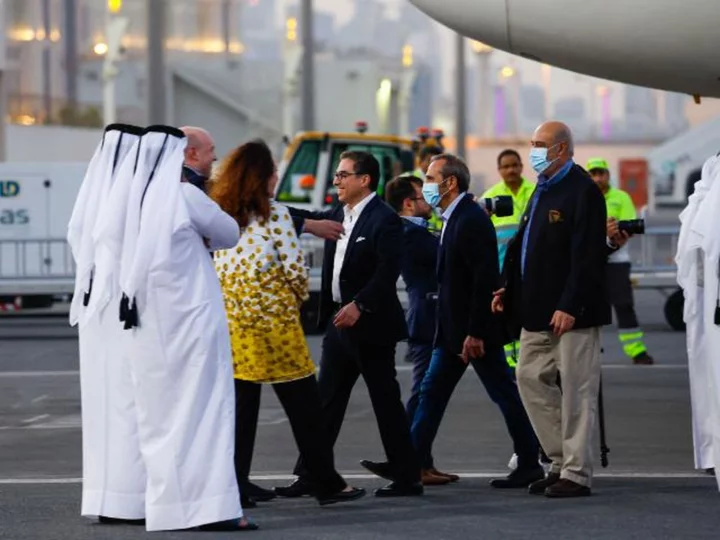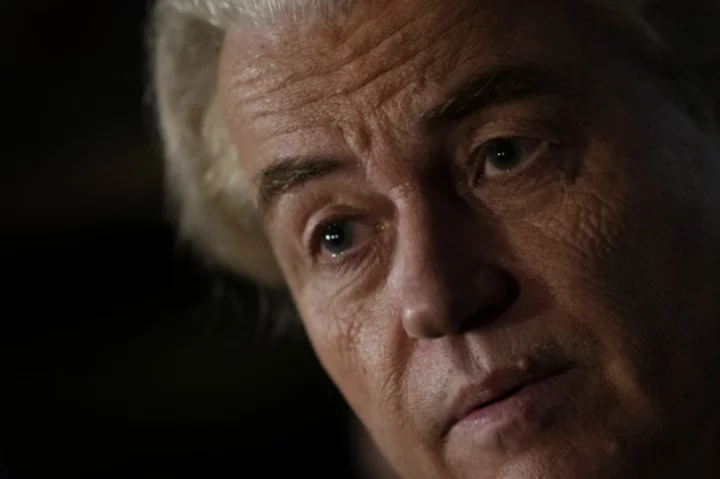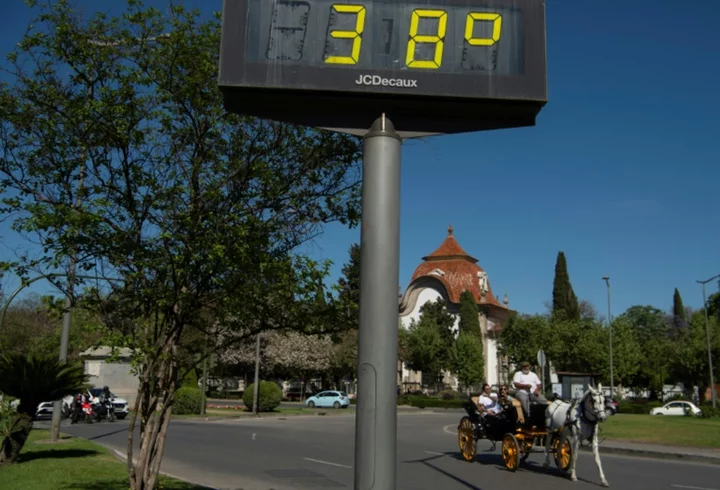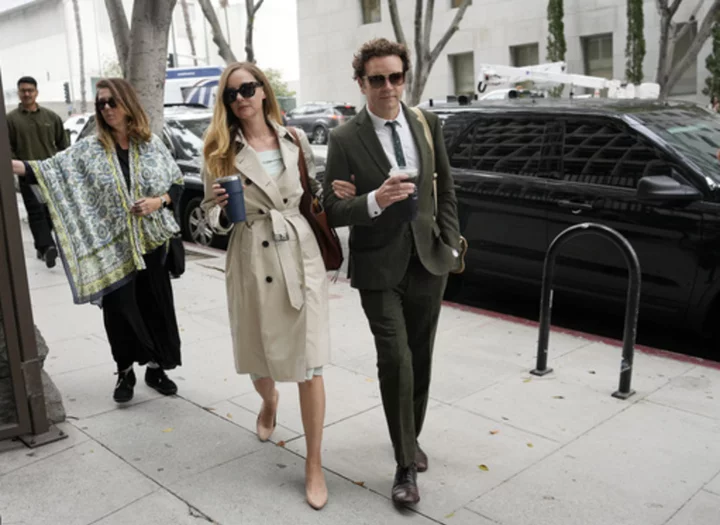The Iranian government now has access to $6 billion of their funds to be used for humanitarian purposes as a part of a wider deal that allowed five Americans who had been imprisoned in Iran to go free.
The money -- which had been held in restricted accounts in South Korea before being transferred to different restricted accounts in Qatar via banks in Europe -- is a a key part of the deal. Iranian and US officials were notified by Qatar on Monday that the transfer had finished, according to a source briefed on details of the matter.
While the Iranian government claims it can use the money however it pleases, the Biden administration has repeatedly stressed that the funds are narrowly limited to non-sanctionable purchases like food and medicine, and that they will be subject to strict oversight.
Moreover, US officials have made clear that the funding, which is Iran's, not from US taxpayer dollars, is not under the control of the Iranian government.
Brett McGurk, White House coordinator for the Middle East and North Africa, said Monday that "no funds are going to Iran at all."
"These funds are paid to vetted third-party vendors for food, medicine, medical products and agricultural products to go into Iran over a period of years. If there is any diversion, we'll know it and we'll lock up these accounts," he told CNN's Jake Tapper on "The Lead."
Republicans have been quick to criticize the deal, alleging that the transfer of the money is harming American credibility abroad and could be an incentive for US adversaries to wrongfully detain American citizens.
White House coordinator for strategic communications John Kirby said it was simply the "result of months and months of hard, hard work by our diplomats, particularly at the State Department, in bringing this about."
What the $6 billion is and how it is supposed to be used
The money made accessible to Iran as a part of the deal are Iranian funds that have been held in restricted South Korean accounts. Sources told CNN the funds came from oil sales that were allowed and placed into accounts set up under the Trump administration.
The money is now available to the Iranian government for purchase of non-sanctionable items such as food and medicine. But it is not totally under the control of the Iranian government and will not reside in Iranian banks, according to the US.
The funds began to be transferred out of the South Korean accounts after four of the five Americans were moved from Evin Prison to house arrest last month. Earlier this month, Secretary of State Antony Blinken approved a waiver to allow financial institutions in Europe to move the money to Qatar without fear of invoking US sanctions.
And the Iranian government was not given the ability to access those funds until US officials had eyes on the five Americans when they landed in Doha, US government officials familiar with the matter said.
Iranian President Ebrahim Raisi said in an interview last week that the Iranian government will decide how and where to spend the $6 billion in frozen assets. Kirby said that statement was "flat out wrong."
"This is not a payment of any kind, it's not ransom, these aren't US taxpayer dollars, and we haven't lifted a single one of our sanctions on Iran -- Iran will be getting no sanctions relief," Kirby said. "We will continue to counter Iran, the Iran regime's human rights abuses, will continue to counter their destabilizing actions abroad, its support for terrorism, attack on maritime shipping in the Gulf, and its continued support for Russia's war against Ukraine."
"The Iranians are telling their people basically what they think they want to hear. Raisi's comments were entirely off base," a senior State Department official said. "But we know the truth, and so we're confident in in this."
How the US says it is conducting oversight
Biden administration officials have stressed each transaction using the funds will be monitored by the US Treasury Department.
"We are implementing this arrangement through the establishment of what we are calling the humanitarian channel in Qatar," which is designed to protect against money laundering and misuse of the funds, a senior administration official said.
Kirby said last week that the money is going to be held by the Qatari National Bank and is available for withdrawal by request from the Iranian government.
"The Iranians can request withdrawals for it for humanitarian purposes, and the countries and it will be, and us -- we will have oversight, sufficient oversight into the request itself, to validate the request and then to deliver funds appropriate to that request," Kirby told reporters.
"The money will then go to qualified vendors to purchase and deliver the food, the medical supplies, into Iran. So, it will go directly to aid organizations or appropriate relevant organizations inside Iran so that the Iranian people can benefit from it."
On Monday, Kirby stressed that the US can stop a transaction from taking place if necessary, and US officials have stressed that if they find misuse of the funds, they can freeze the accounts.
"If Iran tries to divert the funds or use them for anything other than the limited humanitarian purposes authorized, we'll take action to lock up the funds," the senior administration official said.
Trita Parsi, executive vice president of the Quincy Institute in Washington, DC, told CNN that the terms of the agreement are so strict on Iran that they are "humiliating."
"The biggest thing this (US) administration fears is to be accused of being soft on Iran," said Parsi. "In order to balance the fact that they made a deal to secure the release of Americans, they are imposing new sanctions and doing things that make them look really tough."
What the criticisms are
Republican Sen. Tom Cotton of Arkansas last week criticized the transfer, saying, "The way to avoid having hostages taken by Iran is to be strong, firm and resolute and did not use carrots in the form of $6 billion but to use sticks in the form of threats."
Former Vice President Mike Pence -- under whose tenure the White House made two prisoner swap deals with Tehran -- is expected to slam the deal later Monday in a speech, according to a senior Pence campaign official, who said Pence will argue that China may look to exploit the US after seeing the Biden administration's actions towards adversaries so far. The deal with Iran is set to be one of Pence's examples of what he'll call the administration's "posture of weakness."
And last month, 26 Senate Republicans, led by presidential hopeful Sen. Tim Scott, sent a letter to Blinken and Treasury Secretary Janet Yellen criticizing the deal.
"While we firmly believe the United States must use every appropriate resource to secure the release of American citizens wrongfully detained overseas, this decision will reinforce an incredibly dangerous precedent and will enable the Iranian regime to increase its destabilizing activities across the Middle East," the senators write.
They also questioned whether this agreement could be part of a larger plan to create a new nuclear deal with Iran -- a notion that has been firmly rejected by the administration, which says that it sees the nuclear issue and the detainee issue totally separately.
"We are also worried that your administration is attempting to sidestep Congress and pursue other pathways to financially compensate Iran in an attempt to renegotiate a successor to the ill-fated 2015 nuclear deal," they said. "Any agreement with the Iranian regime that entails financial reward for malign behavior is wholly unacceptable."









